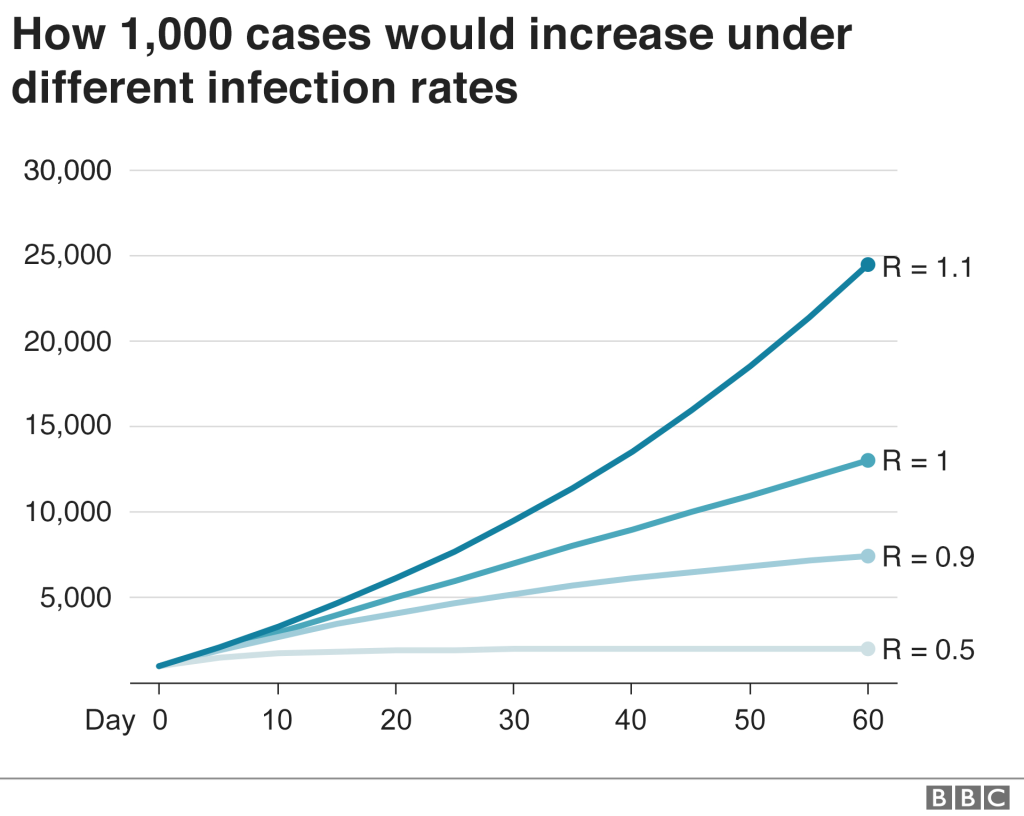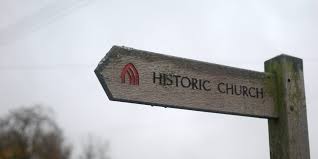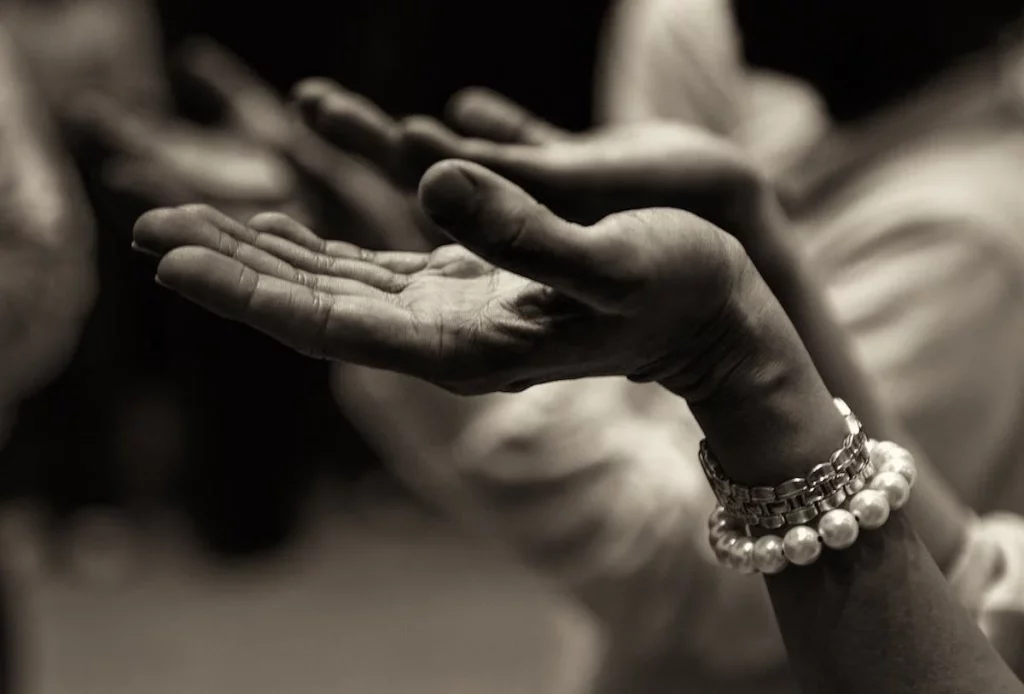CRISIS? WHAT CRISIS
THE NUMBERS GAME

‘
The Lobster
If you want to cook a live lobster, it’s important not to throw it into boiling water. It will then struggle desperately to escape. You put it into a pan of cold water and slowly increase the heat. The lobster then goes to sleep, is stunned and dies. Is this what is happening to the Church? The institutions continue to operate with somewhat reduced numbers. Looking for any green shoots of growth that might indicate a more hopeful future. But the stats are against them.
The R factor
The number of people in the UK who identified themselves as Christian dropped to 46.2% in the 2021 census, a decline of 22%. This decline was partly mirrored in church attendance. Between 2011 and 2019 adult church attendance in the Church of England also declined from 851,00 in 2010 to 734,000 in 2019, a decline of 12.6%

The problem is that this has been relentless. The same statistical tool which was used to determine the spread or otherwise of the Covid 19 virus can be used in respect of the Church. If the Reproduction Potential, ‘R’, is less than one, then losses outweigh conversions and the church eventually dies. If ’R’ is greater than one, then conversions outweigh losses and the church grows. For many decades those churches founded before 1900 have had a ‘R’ of less than one and have been in steady decline. It is churches such as Elim, New Frontiers and Vineyard which have shown steady growth. To put this into perspective, the Church of England has a weekly attendance of about 700,000. Elim churches have 50,000.
‘The Baptists and Brethren should last until the end of the century. Their decline is slow, and there is hope that they could return to growth if they make conversions their priority.
The Church of England and Catholics should last until the second half of the century. However, they need to take urgent action now. Stemming losses is not enough. None of us can prevent ageing! Whatever their current denominational emphases, they should put all aside to encourage members to make new disciples who can replicate themselves. Praying for an outpouring of the Holy Spirit would not go amiss either.
Sadly, the immediate future looks bleak for the Church in Wales, Church of Scotland, Episcopalians, and Methodists’.
One thing is clear, if things carry on as they are, the future of Christianity does not lie in the hands of the older denominations. These products of the Reformation and Puritan times have run their course. They have fulfilled God’s purposes and are no longer part of his plan. The Church of England will cease to be a national church, and the Churches of Scotland and Wales will disappear by the middle of this century. Instead, God will work through the next cycle of denominations – Pentecostal and Evangelical ones, picking up the pieces left by the extinct historic churches.’ (‘Growth, Decline and Extinction of UK Churches’, John Hayward May 2022)
However this does not take into account the difference in absolute numbers. It is not beyond the bounds of possibility that after a period of decline, the historic churches could grow again from a smaller but more enthusiastic base.
The Age factor
In 2019 people over 70 made up 33.5 of the worshipping population. In 2021 that figure was 36.4%. Even with the advance in medical science, it is clear that even greater conversions need to take place if the churches are to grow rather than decline.
The Covid Factor
The Covid pandemic of 2020 hit all institutions including the church really hard. The problem is that the churches have had a lower rate of recovery. ‘Although weekly in-person attendances at services were up more than one third from 2020 levels, they remained almost one third lower than pre-pandemic levels.’ (Church Times, December 2022). The Church Times also commented that whereas church attendances were down 30%, football matches numbers were only down 5%. In the churches I attend it does feel that these lower number is the new normal. It will take a big effort to climb back up to the previous numbers. Unless that happens, it looks as if extinction could have been hastened by ten years.
CHURCH VS. SECT
A woman chaplain in the Lithuanian Lutheran church said in 2022, “Our institutions may die. Our buildings may die. But our faith will survive.”
The question is, what sort of faith?
There is a further crisis facing the churches beyond the question of numbers. That is, just what sort of church do we want to be? A church which is able to relate to society as a whole, or a sect which exists simply for and by conversions? Will the church be able to reclaim a voice in the public square, or is our future simply to be having faith-filled conversations within the bubble of the saved?

A good example is the status of the first chapter of Genesis. Is it actually true in its description of the process of creation, though possibly within a different time frame, (i.e. 13.8 billion years)? Or is it an ancient civilisation’s insight that the universe is ultimately ordered and not a battlefield of warring deities?
To say that Genesis 1 is literally true helps to affirm that the whole of the Bible can be relied on. So those who have come to a transforming experience of God can rely on it as their ultimate authority. Or will the evangelical churches begin to take a more nuanced view of the Bible and so maintain a voice in the public square?
To say that Genesis 1 is an ancient human story is to open the floodgates to a relativisation of the Bible, both as a historical record and an ethical framework. Is this throwing the baby out with the bathwater? Churches which hold this view are in decline.
As Nick Spencer, Senior Fellow at These, write in the Church Times in September 2022, “I believe that at some point … the Church is going to have to recognise that the umbrella v. missional conundrum, before it becomes an outright hypocrisy, or, worse, before there is no Church to face it at all.”

VOX POPULI
As a small experiment, I surveyed twenty people in 2023, ten women and ten men, chosen at random in the Victoria and Albert Museum, Picturehouse Central and Caffe Nero. They were born between1987 and 2004. I asked them for their instant responses to ten words: religion, Jesus, Islam, the Bible, Buddha, Prayer, Mohammed, Krishna, the Church and Mindfulness. Of course there is no statistical significance, but here are some of the results:
Religion: fourteen gave between 4 and 7;
four between 0 and 3; two gave 8 and 10
Jesus: fourteen gave between 4 and 7;
three gave 0; three gave either 8 or 9.
Islam: twelve gave between 4 and 7;
three gave between 0 and 2; five gave between 8 and 10, of whom one was muslim.
Buddha: twelve gave between 4 and 7; four between 0 and 3; four gave 8.
Mindfulness: five gave between 4 and 7; sixteen gave between 8 and 10 of which five gave 10, including one man who had given 0 to all the previous words.
What do I conclude from this tiny survey? Most people are quite tolerant and do not have strong religious opinions. The rating of Jesus, Islam and Buddha is roughly equal. And mindfulness wins hands down.
DISESTABLISHMENT?

It does not take a crystal ball to forecast that within thirty years all the major denominations will face an existential crisis, simply because over a third of existing congregations will be dead. There will be a massive transfer of responsibility for Church of England churches to other bodies, whether the National Churches Trust, the Churches Conservation Trust , English Heritage or the Government. There will still be vibrant congregations led by clergy being ordained now, but the parish system is almost certain to break down. Disestablishment hovers as a blessing or a curse. A curse because it will reduce the footprint of the church in the life of the nation, and so by itself is a recipe for continued decline; a blessing because it releases us for the role of being official providers of weddings. If the provision of weddings becomes simply the prerogative of the state, as in most of Europe, then the decision of whether or not to bless any couple, heterosexual, divorced or gay, becomes a matter for the individual conscience of the church minister.
COMMUNITY OF COMMUNITIES

I think the most likely future is that organised Christianity is going to give way to disorganised Christianity. That is already seen in the proliferation of Pentecostal churches in Africa and Latin America. All Churches will become a network rather than an organisation. The religious landscape will transformed into community of communities, communities of prayer and communities of transformation. The older denominations could become communities of prayer, using the wealth of centuries of liturgical prayer and classical music. They could easily become prayer centres teaching meditation and contemplation. Communities of transformation will centre their lives around leading new people to a vibrant relationship with God. These are of course not mutually exclusive, but the death of the organised church will disclose the hidden tension which has probably always existed within the churches.
HUMILITY
Whatever the shape of the Church in the future, we will have to grapple with ways that the Church has understood itself which no longer make any kind of sense to 21st century people. The Church will have to learn how to listen to different voices, different ways of understanding, different ways of belief, just as Charles Gore in ‘Lux Mundi’ did in 1889 and John Robinson in ‘Honest to God’ in 1963. It will, at last, have to learn the virtue of humility.
